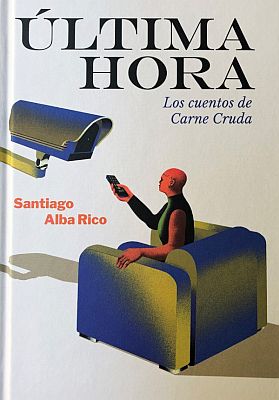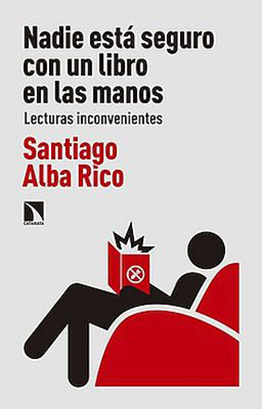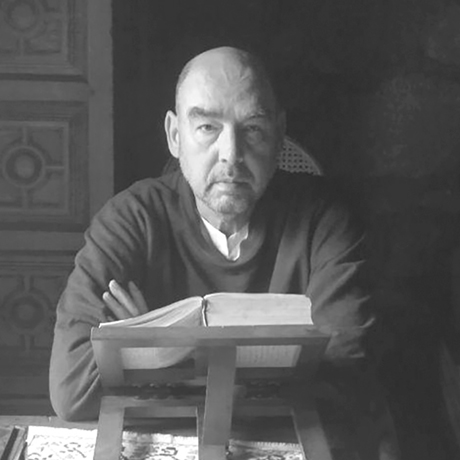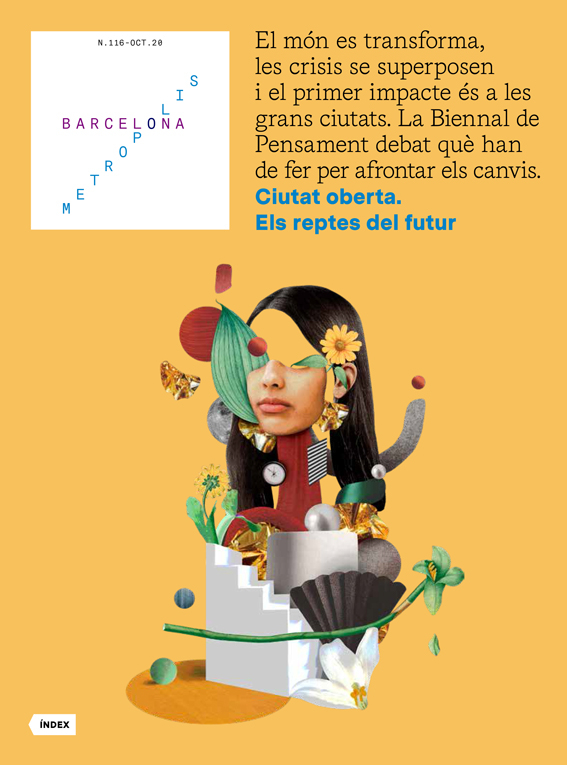The end of the (common) world
Open city. The challenges of the future
- Dossier
- Oct 20
- 12 mins
The Flat Earth theory and other denialist utopias are the radical expression of increasingly widespread indignation at the mental and material decay of the common world. They do not want to live in a world like this one. The major challenge is to save the common world.
Last April, at the height of the lockdown in Italy, a middle-aged Venetian couple illegally travelled to Palermo, Sicily, where they sold their car to buy a boat. Days later they had to be rescued at sea by the coast guard in a sorry state: tired, thirsty, and risking shipwreck. Where were they headed? Staunch flat earthers, they wanted to verify with the naked eye the limits of the planet, the finis terrae that, according to medieval legends, would be found on the island of Lampedusa. They went off course and were picked up in Ustica, near Palermo, and forced there to quarantine on their boat for fifteen days in the port. That said, the couple’s convictions were firm and their courage, militant, admirable in itself, worthy of a better cause. Twice they made an attempt to escape and resume their adventure and twice, immobilised by the currents, they had to be rescued from shipwreck. When the health measures were finally relaxed and they returned to Venice – to the relief of Salvatore Zichichi, maritime health officer –, they took home, in any case, proof that they were right. It is true that they had not seen the edge of the Earth’s disc, but they had not seen it because the Carabinieri and the coast guard, under the pretext of rescuing them, had prevented them from reaching it.
Rebellious and anti-establishment
We can joke about the folly of a pair of freaks, but drawing a number of more general lessons is preferable. From the outset, it must be noted that it’s not a question of two lunatics. At the flat-earth congress held in the city of Palermo in May 2019, more than one hundred people paid 20 euros each to attend the apodictic demonstrations, with water bottles and cutout globes. It was led by Agostino Favari and Albino Galuppini, both graduates from technical faculties and both former members of the Five Star Movement political party, in Italy’s coalition government today. The very founder of the party, the well-known comedian Beppe Grillo, had announced his attendance, although he did not made an appearance in the end. Since then, the Flat Earth movement, in the heat of the COVID-19 pandemic, has not stopped gaining followers; their websites and their YouTube channels have literally millions of subscribers and followers, mostly educated middle-class Westerners, disillusioned with the right and the left, with Catholicism and with communism. Their disenchantment has led them to thread the Flat Earth belief, the rejection of 5G networks, the refusal of vaccines and health denialism on the same chain. They consider themselves rebellious and anti-establishment; they deem science and its principles “dogmatic”, if not conspiratorial; and they condemn an elitist conspiracy – from Gates to Soros, from NASA to Pope Francis – aimed at building and reproducing that opportunistic hologram, like in The Truman Show, which conceals reality from us.
The crux for flat earthers is the desire to establish a real common world as opposed to the one they separate from precisely because it is not common and it never has been.
From the fiction-like story of the Venetian couple, and from the Flat Earth movement in general, we can draw very serious conclusions related to the mental and material erosion of the common world. Let’s see: it might be thought that by adhering to the Flat Earth theory and plotting in general there is an urge for distinction, a desire to separate from the community to affirm a higher, more exclusive and true knowledge, which makes its initiated members the sole receivers – versus the lack of understanding of an alienated or manipulated world – of the salvific message. There is undoubtedly an element of this, and it certainly evokes the context of civilisational decadence into which Christianity was born, a long agony in which dozens of religious sects – Gnostics, Neoplatonists, Manicheans – demanded direct and transparent access to the truth. But the crux for flat earthers, to my mind, is not the “separation” but, conversely, the desire to establish, in parallel, a real common world as opposed to the one they separate from precisely because it is not common; because it never has been. That said, this radical contestation is only possible through the boldest of breaks; if their rejection of the roundness of the Earth seems hilarious and almost pathological to us, it is because it is the oldest and most established scientific acquisition in the history of mankind. As the palaeontologist Stephen Jay Gould tells us, the spherical nature of the Earth was demonstrated by the Greeks and was picked up without being challenged by mainstream Christian thought — Beda, Augustine, Bacon –; nobody ever called it into question. It was 19th-century scientist ideology that attributed to the medieval world, to stress the idea of progress, a ridiculous belief only espoused by Lactancio and Cosmas Indicopleustes, two outsiders to the official culture of their time.
We all think, then, that our ancestors believed in the flatness of the Earth because we can thus measure, as opposed to them, with indulgent condescension, our advances and strengths. Choosing, therefore, this knowledge acquired as an object of demolition presupposes a formidable nihilistic audacity and reveals the despair of a shattered world. If the only thing that could not be challenged is not true either, if the only fact shared by the majority – the roundness of the Earth – turns out to be false or at least uncertain, what then remains of what is collective and common in our minds? The Flat Earth theory fuels the end of the common world with no possible objection, but above all it shows it with extreme acuity. It is the utmost expression of an increasingly widespread indignation among humans: Flat earthers do not want to live in this world; they do not want to live in a world like this one. When they imagine it is flat, they are actually imagining it to be a different one, they are imagining another world. Their unassailable delirium thus has a contestable and a utopian dimension. The contestable aspect is total, radical, with no exceptions: it is not limited to rejecting banks, pharmaceutical companies, armies, technologies, great fortunes: it challenges their very form, rigged for centuries by banks, pharmaceutical companies, armies, and so on. But it also has a utopian side, as it demands another physical world; it literally affirms the existence of another planet that you would not have to be moving around all the time to return to the same place. Will a flat Earth be easier to manage? Freer, more comfortable, lighter, less obscure for its inhabitants?
 © Raquel Marín
© Raquel MarínIn a world in which there is no longer facts or shared lands, we must come down to the body itself as the only proof of the existence of external reality.
Verifying the truth
Inseparable from this break, the other lesson in the story of the Venetian couple teaches us that, in a world in which there are no longer facts or shared lands – in which humans’ mental and material community has been destroyed –, we must come down to the body itself as the only proof of the existence of external reality; the lowest and most solipsist of empiricisms prevails. Flat earthers have to verify the truth with their own eyes (as do health denialists with disease: “We haven’t seen the virus!”), convinced that every mediation and every representation are a hoax, which results in the destruction of all inherited knowledge, the matrix of shared reality, in favour of a naive, impossible and dangerous immediate and transparent relationship with the object of knowledge.
Let’s say that all knowledge, no matter how much it deals with an item independent of our will, is a relationship between humans. It can be of two types: fiduciary or cumulative. The fiduciary, in turn, can be abstract or concrete. We call God the abstract and, until Nietzsche dismantled his machinery, it basically served to ensure a correspondence between words and meanings for us. Concrete is called society and it begins very low down and very close by, with the trust with which – Chesterton would say – we believe as children that bees sting because our mothers told us so, like we believe that the grass is green and the sky blue for the same reason; without this light and exciting anthropological cement we would not later believe in our friends or in our lovers or in our peers; not even in the unknown passer-by who we ask the time on the street. As far as cumulative knowledge is concerned, we first have institutional memory; the fact that most of the things we know, also in a practical way, have been told to us by our teachers, our media, our political representatives; or that instances submerged in darkness materially provide us with them: light, water, money, law, health. The other cumulative knowledge, in short, is that of the scientific community that, painstakingly and always provisionally, reduces the world’s darkness millimetrically, without being able to prevent each of its flashes from illuminating, above all, the growing width of darkness remaining; that is why science is always fighting a losing battle to raving superstition: in science, unlike paranoid delusion, all the pieces never fit.
Knowledge is a link between humans customarily accepted, just as we accept the ground beneath our feet. The Flat Earth theory, as a radical denialist utopia, illustrates the catastrophic loss of this link.
The most uncertain instrument
Ultimately, knowledge is a link between humans customarily accepted, just as we accept the ground beneath our feet. That said, the Flat Earth theory, as a radical denialist utopia, illustrates the catastrophic loss of these links central to our mental and material survival. And if we cannot trust an absent god, a disjointed society, failed institutions, a science that is sometimes an accomplice of capitalism, we end up resorting to our own naked, solitary and vulnerable body, the most uncertain, most deceptive and least insightful instrument in order to gain knowledge. If the body alone is not able to distinguish red from green, how will it be able to recognise the limits, the dimensions, the shape of the planet? There is something tragically fragile in this trust in one’s own eyes and in the transparency of the world as the last refuge in the face of collective catastrophe: someone who only has their body to know is like someone who only has their body to make themselves known, just as it happens to immigrants who, stripped of their passport, reduced to their bare human existence, are exposed to all kinds of violence. When you have stopped trusting fiduciary knowledge and cumulative knowledge and you are at the mercy of your own experience, you can believe in anything. Paradoxically, the utmost scepticism is the threshold of the utmost credulity. And the utmost credulity is the gnoseological curse of a vulnerable and unaccompanied body.
The Flat Earth theory, with all its conspiratorial concomitants, is the radical expression, as we said, of the general outrage at the mental and material decay of the common world. How must we defend that world? We must understand, from the outset, that it has not decayed by itself; that the anti-establishment activists of today, like the communists of yesteryear, are right to distrust pharmaceutical companies, the major economic powers, and medical iatrogenesis. The difference is that communism, with all its errors and political superstitions, knew more and better because it was, in any case, an intellectually powerful collective project and could distinguish, at least sometimes, between the history of capitalism and the history of science. This difference between the Flat Earth theory and communism, incidentally, effectively measures the magnitude of the civilisational deterioration we are experiencing. How, then, can we defend in our minds a common world that has been savagely eroded on the outside? Since we know what has been destroyed, we know what needs to be rebuilt; and if the destruction has been material, we know that the reconstruction must be too. We have to materially reconstruct the conditions in which knowledge relations between humans, both fiduciary and cumulative, can reappear. We have to save families because only true love (in need of shelter, sleep, health, decent food) can go to the trouble of explaining to a child that bees sting. We have to save the institutions because only a true democracy (in need of a welfare state and rule of law) can make the words of politicians and the news in newspapers credible. And we have to save the major scientific conquests because only a true community of knowledge (incompatible with destituent capitalism and its technological hybris) can make health measures and well-founded warnings about the end of the (common) world credible.
What we all know, including flat earthers, is that round creatures are more fragile than flat ones.
Recommended publications
 Última hora. Los cuentos de Carne CrudaSantiago Alba Rico. Arrebato, 2019
Última hora. Los cuentos de Carne CrudaSantiago Alba Rico. Arrebato, 2019 Nadie está seguro con un libro en las manos: lecturas inconvenientesSantiago Alba Rico. Catarata, 2018
Nadie está seguro con un libro en las manos: lecturas inconvenientesSantiago Alba Rico. Catarata, 2018 Islamofobia. Nosotros, los otros, el miedoSantiago Alba Rico. Icaria, 2015
Islamofobia. Nosotros, los otros, el miedoSantiago Alba Rico. Icaria, 2015
The newsletter
Subscribe to our newsletter to keep up to date with Barcelona Metròpolis' new developments




